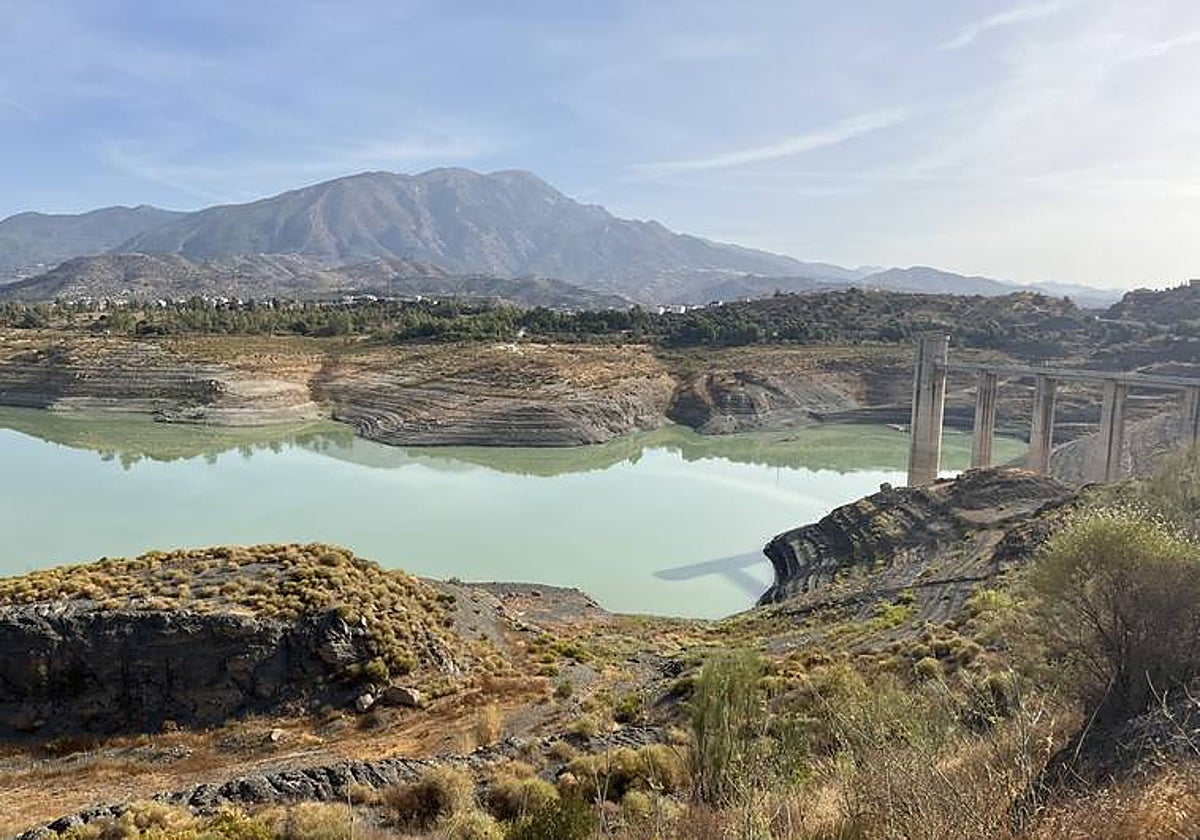Malaga environmentalists call for end to subtropical fruit boom
GENA raised the alarm in 2017 about a drought situation due to the expansion of irrigated land in the Axarquía and the effects of climate change
Environmental action group GENA-Ecologists in Action has written a letter to Andalucía's regional government, the Junta, warning about what it describes as the "subtropical boom".
Spokesman for the environmental group, the biologist Rafael Yus, said that the group has been speaking out about the consequences of the expansion of land for subtropical fruit cultivation since at least 2016, when water levels in the Axarquía’s Viñuela reservoir were not yet as critical as they are now.
Farmers and subtropical fruit growers have had their supply stopped altogether since 1 October 2022 when the reservoir reached an historic low. Now at 10.7 per cent capacity, just 17.7 cubic hectometres, the environmental group considers that the emergency measures put in place by the regional government to alleviate the situation for growers are encouraging the boom.
In 2020 GENA published a report, 'The subtropical boom and water collapse in the Axarquia', which mapped the Axarquía’s agricultural land use in 2017. "By that time, the limits of sustainability of the water system had already been exceeded," explained Yus.
In his opinion, the situation, "far from slowing down, is continuing, even in the middle of a drought, regardless of the estimates of the authorities". Yus believes that "it is appropriate to warn people again about the consequences of this continuous, uncontrolled and excessive growth.”
Key moments
He believes that there have been three key moments in terms of expansion of irrigation in the Axarquía. These, he says have been in the mid-1980s, around 2008 and then ever since 2017, "when the drought already began to threaten the sustainability of crops".
The first expansion occurred after 1986 when La Viñuela reservoir was put into service. However, Yus says that this was controlled “because its limits were well defined by decree” and was then only used for avocados, as mangoes were not yet widely grown. "This limitation was respected for two decades, showing the sustainability of the system," Yus explained.
However, from 2008 onwards, with the Spain’s financial crisis, "there were several circumstances that marked the beginning of a second boom, with notable increases in irrigated areas". One of these circumstances, according to GENA, was the increase in demand for subtropical fruit at a European level, with very competitive prices, and the best time “in the history of agriculture in the Axarquía, for farmers and marketing companies", says the environmentalist leader.
Uncontrolled irrigation
This led to uncontrolled irrigation, as the water authority did not control this excessive growth, and by 2017 mango cultivation had also taken off in the Axarquía. It was at this point that Yus says GENA “raised the alarm” about a boom “that could collapse the area’s water resources; a situation that we warned would be aggravated by increasingly frequent droughts, due to climate change”.
For GENA, "far from providing a response to this problem” regional politicians “ran an election campaign in the Axarquía in which they promised extra water resources for this sector, from transfers from other sources that they described as having a surplus".
In the midst of the current drought and with measures in place, GENA argues that "the Junta has continued feeding the subtropical boom, despite the fact that the available resources have been reduced by more than 50 per cent since before the drought”.
In GENA's opinion, the planned desalination plant, with a capacity of 25 cubic hectometres, expandable to 40, "will contribute to this political boom". He argues that there has been a “disproportionate growth of subtropical crops” in areas of the Axarquía situated at over 140 metres above sea level, for example in the village of Periana. This latest boom, which is happening despite the drought, “is already an unstable scenario with very serious consequences," he says.
In this latest letter to the Junta de Andalucía, GENA warns of the "enormous risk" of continuing with this "dynamic of feeding the subtropical boom" which will have consequences "sooner rather than later, if we consider the effects of climate change".
Solution
GENA has proposed a solution with six measures. Firstly, to stop converting unirrigated land into irrigated land and to stop those growers who don’t have their own water resources or arrangements with other farmers. Secondly it proposes maintaining effective monitoring to prevent new crops being planted. The environmentalists have also asked the Junta to "prohibit and control the resale and pumping of water to plots higher than 140 metres above sea level.
They have also called for the “use of efficient irrigation systems, limiting the amount of water per hectare" and "to reduce the irrigation allocation per hectare to lower values than those in existing water plans, adjusting it to the lowest real irrigation needs". GENA also proposes "annulling and sealing illegal wells and stopping the drilling of new boreholes under the premise of limited groundwater resources".
The environmentalists say the use of regenerated, desalinated and conventional water from other sources such as the Chíllar river in Nerja and the Río Verde-Rosaleda in Malaga city should only be employed "as back up in times of a declared drought, such as the one we are currently in", they argue. "These new resources should be considered as a backup and not as an extension of the normal resources,” GENA concluded.

